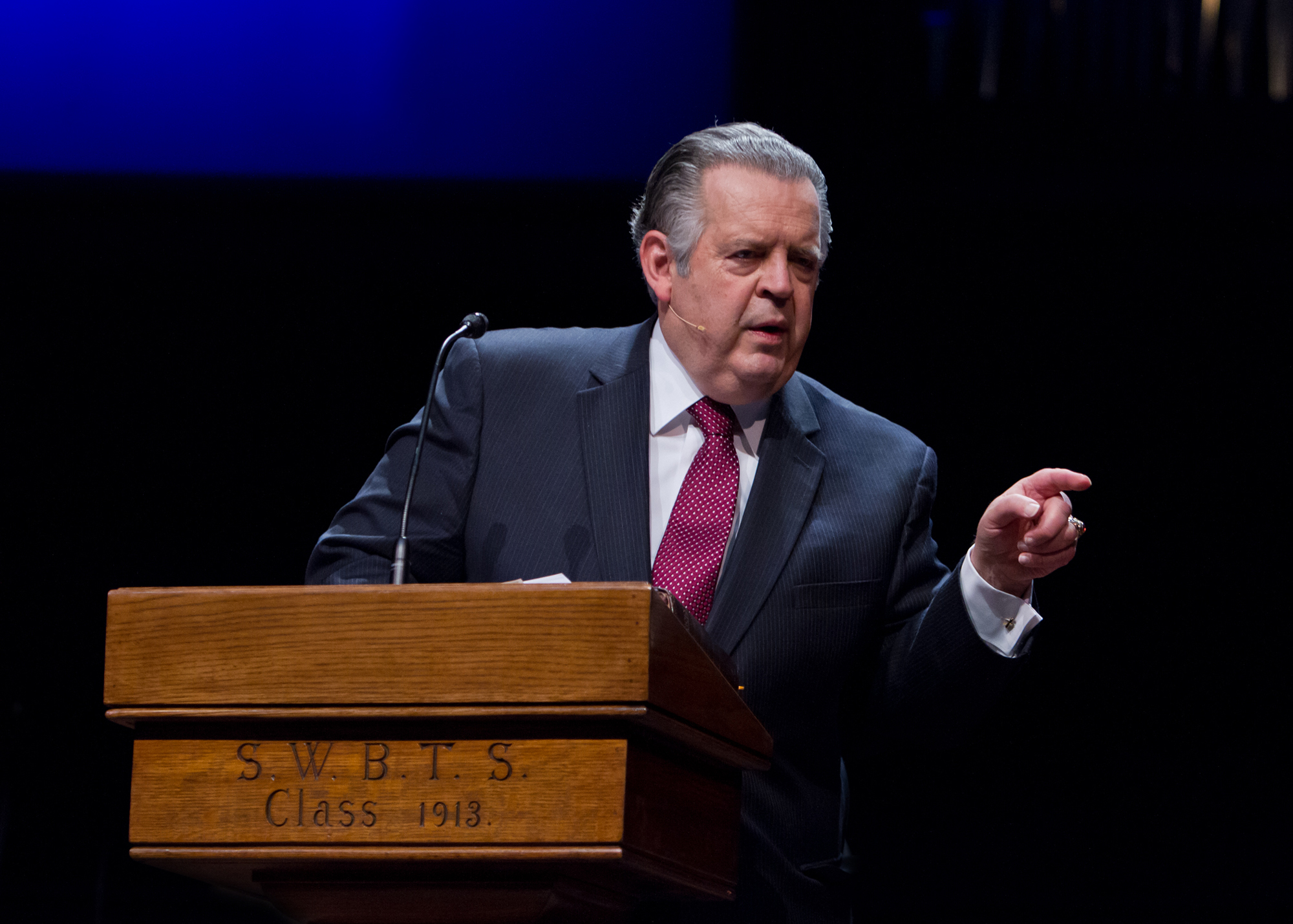
FORT WORTH, Texas (BP) — Southern Baptist Convention ethicist Richard Land denounced the national health care law for its infringement of religious liberty during a chapel sermon at Southwestern Baptist Theological Seminary Feb. 14.
According to guidelines announced by the U.S. Department of Health and Human Services (HHS) and President Obama, religious organizations who offer health insurance to employees must subsidize insurance plans that cover contraceptives and abortive drugs, such as Plan B (the morning-after pill).
 “The ideologues, including the ones who sit in the Oval Office, believe that the woman’s supposed right to free contraception, abortifacients, morning-after pills and sterilization services trumps the religious convictions of tens of millions of Americans who believe that they have a constitutional right not to finance that which they find unconscionable,” Land said.
“The ideologues, including the ones who sit in the Oval Office, believe that the woman’s supposed right to free contraception, abortifacients, morning-after pills and sterilization services trumps the religious convictions of tens of millions of Americans who believe that they have a constitutional right not to finance that which they find unconscionable,” Land said.
“The greatest threat to religious freedom in America now and for the rest of my lifetime will be government intrusion on the free exercise of people of faith’s practice of their faith.”
Reading the first commandment in Exodus 20 and Christ’s appeal to give to Caesar what is Caesar’s and to God what is God’s, Land said, “Ultimate allegiance, ultimate obedience, ultimate authority must be given to God, not to any government.”
“Our Baptist forefathers understood this,” he added, citing the article on religious liberty in the Southern Baptist Convention’s Baptist Faith and Message:
“God alone is Lord of the conscience, and He has left it free from the doctrines and commandments of men which are contrary to His Word or not contained in it. Church and state should be separate. The state owes to every church protection and full freedom in the pursuit of its spiritual ends. In providing for such freedom no ecclesiastical group or denomination should be favored by the state more than others. Civil government being ordained of God, it is the duty of Christians to render loyal obedience thereto in all things not contrary to the revealed will of God. The church should not resort to the civil power to carry on its work. The Gospel of Christ contemplates spiritual means alone for the pursuit of its ends.
“The state has no right,” Land added, “to impose penalties for religious opinions of any kind. The state has no right to impose taxes for the support of any form of religion. A free church in a free state is the Christian ideal, and this implies the right of free and unhindered access to God on the part of all men, and the right to form and propagate opinions in the sphere of religion without interference by the civil power.”
Land urged faculty and students at the seminary to stand for — and, if need be, to suffer for — these principles, as their Baptist forebears did. He called them to be the salt of the earth and the light of the world.
“In order for salt to be salt,” Land said, “it has to come into contact with that which it is going to cure, that which it is going to preserve. God is calling upon Christians to go out into a lost and fallen world and to be a moral preservative. …
“We have got to be close enough to the world that they can see the light and feel the heat. But the Bible tells us men love darkness rather than the light because their deeds are evil. And salt does preserve, but it also stings and burns and irritates. If we’re going to be the salt of the earth and the light of the world, we’re going to trouble the lost world. We’re going to be a burr in the saddle of a government that wants to be God itself.”
Land encouraged his audience to sign the Manhattan Declaration’s petition opposing the guidelines set forth by the administration. (ManhattanDeclaration.org.) Land said the declaration stands for “three non-negotiables: the sanctity of human life, the sanctity of holy matrimony and religious freedom.”
“We will not compromise on these issues,” Land said. “As Martin Luther said long ago, ‘Here I stand. I can do no other.'”
The night prior to speaking in chapel, Land addressed these issues during a Q&A session on faith and politics at Southwestern Seminary’s Grindstone. Audio for this Q&A session on faith and politics can be accessed under “Student Forums” at swbts.edu/mediaresources. To access Land’s chapel message, visit Southwestern Seminary’s website at swbts.edu/chapelarchives.
–30–
Benjamin Hawkins is senior news writer for Southwestern Baptist Theological Seminary in Fort Worth, Texas (www.swbts.edu/campusnews).















